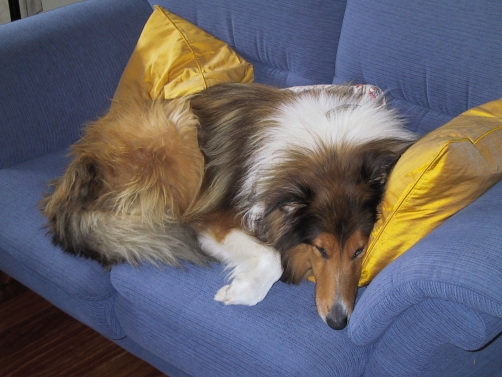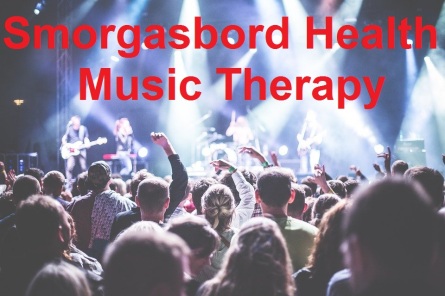
Yesterday I went into some of the reasons why a good night’s sleep on a regular basis is so important for the health of our body including heart health, weight loss and our immune system. Today some strategies to get that much needed sleep and some more musical therapy to wear you out before bed.

Getting to sleep at night
Unless you are Mediterranean, and used to eating late at night from childhood, avoid having dinner just before you go to bed. Leave at least two hours – and if it has been very spicy then leave for at least three hours. I have no idea how anyone can go out for a night drinking, eat a curry and go to bed and not suffer a dreadful night’s sleep.
Your digestive system will still be in full operational mode as you are trying to get off to sleep and if your digestive system is awake, so are your other organs such as your liver and heart.
Alcohol can be a stimulant and whilst excessive amounts may make you sleepy it is going to wake you up four hours later with a raging thirst and a thumping headache. Once in while you may get away with it but if it is the norm you will become seriously sleep deprived.
If you have not been very active during the day, but have have been working on your computer for several hours, your mind might be tired but your body still has some surplus energy. Those of us who have dogs who need walking benefit from both the physical activity and the fresh air before hitting the pillow and if you can safely take a stroll at night then it is an excellent idea.

You can try some musical therapy followed by the breathing exercises that I shared last week: improving lung function

Sitting up too late, watching an action thriller is not the best way to ensure a good night’s sleep. If you are anything like me you are still in the middle of the action as you try to get to sleep and we usually pick something light and humorous to end our viewing with… laughter is good all over exercise!
Make sure that there is plenty of airflow in the bedroom and sleep in comfortable clothes. I have no idea how people manage in button up pyjamas as they must be so restrictive and you will be moving around quite a bit at night and getting tangled up in both bedclothes and your nightie is going to disturb you.
I find that, however late I go to bed, reading a few pages of a book is guaranteed to help me drop off. Many people have discovered their own sleep triggers over the years, including warm baths with Epsom salts, herbal teas such as Kava Kava and Valerian, and gentle music that drowns out the noise of neighbours, or a snoring partner.
Earplugs can be very useful, particularly if you are sharing a bed with a snorer, although you may miss the alarm clock in the morning.
If you are going to bed at more or less the same time every night you will find, within a very short space of time, you will wake at about the same time every morning. In fact, it is a good idea to follow the same sleep patterns all week rather than opt for a lie in at the weekend. It establishes a healthy downtime for the body and does not confuse it for two days every week.
Sleep is an essential part of a healthy lifestyle and research is increasingly showing that it is also vital for the development of our brains. Children who do not get sufficient sleep will develop behavioural and learning difficulties as well as compromise their immune systems and future health.
Keeping your children up with you late at night is not healthy. They need far more sleep than we do during their rapid growth spurts. Make sure that they have a nap during the day about half way through their active hours and get them into the habit of getting at least 10 hours sleep per night. When they are very young you will obviously be waking them for feeds and then for potty training but you must always try and ensure that they are kept calm and are put back down as quickly as possible.
This will also be healthier for you as this is the time when most parents are likely to suffer from sleep deprivation. The next crisis for those of you with teenagers is when they fail to return before 2.00 in the morning.
Stages of sleep that need to take place for you to be healthy.
There are a number of different stages of sleep and it is important that you go through the entire cycle to reap all the benefits.
There are two main phases. In phase one you will be going through Non-Rapid Eye Movement Sleep or NREM. There are different stages within this phase which naturally lead you to phase two or Rapid Eye Movement sleep or REM.
Phase one NREM
Stage One. This is the lightest stage of sleep and although your main senses are turned down they are not off completely and you can be disturbed by certain noises such as snoring, dogs barking or doors slamming.
Stage Two. If you get into this stage you will fall deeper asleep and your heart rate and temperature will begin to level out and drop. This stage represents about half your night’s sleep.
Stage Three and Four are the deepest stages of NREM and represent about 15% of your night’s sleep. Your breathing will slow; your temperature will drop further as will your blood pressure.
Phase two REM
After about 30 minutes in stage four NREM sleep you begin to move back to stage one and two where your brain will become more active and you will begin to dream. If you are woken up at this point in the cycle you are likely to remember the dream you were experiencing at the time. If you have reached one of the NREM stages then you are not as likely to recall anything when you wake up.
This cycle of phase one and two takes approximately 90 minutes and then begins again. To really benefit from this combination of rest and activity you need to complete at least 5 cycles during the night. This adds up to approximately 8 hours of sleep. If you only manage one or two cycles then your brain and body will not have completed its cleansing process and you will feel tired. If this becomes the norm you will begin to notice the symptoms of sleep deprivation.
Sleep is as essential as air, water and food and if you are not currently enjoying a good night’s sleep then you need to work towards finding a solution.

The power of the siesta
Having lived in Spain for 17 years, I adopted one of the local traditions early on, especially in the heat of the summer. Sam our collie adapted immediately and took siestas frequently throughout the day…
Taking a nap is actually a way to catch up on your missing sleep. The most natural time for a nap is 8 hours after you have woken up in the morning and 8 hours before you go to bed. This way it is unlikely to affect your ability to fall asleep at night. Even 20 minutes can actually revitalise you and rest your body ready for another 8 hours of activity.
Make yourself comfortable, loosen your clothes and just close your eyes. Even if you do not fall asleep your body will relax and everything from your muscles to your brain will benefit.
Get moving with Music Therapy

Over the course of these posts I will be sharing my playlists I would warm up the crowd with at charity walks and runs. They should help build your resilience and improve physical, mental and emotional well-being.
If you are not particularly active at the moment then you can walk on the spot, but swing your arms in time to the music so that you activate your breathing. If you are a little bit more adventurous then take to the floor and have fun.
I am a country girl at heart and was thrilled to be introduced to Line Dancing when I lived in Texas, even if I was pretty ***** at it… but I was a huge fan of the music before I arrived and so have infiltrated by playlist since then with some foot stompers.
This is another that one is perfect for walking on the spot and swinging your arms… or step from side to side and then bring your feet together. If you can bring your arms up over your head that will get your blood flowing.. A couple of plays should help get you to sleep…
Here are The Woolpackers with Hillbilly Rock thanks to TheTillypig
Thanks for dropping by today and I hope you will drop in next week for more strategies to keep fighting fit..
Here are the links to the pages that support the posts in the series
- Weight Loss – Size Matters The Sequel
- The Lungs
- Stress
- The Immune System and Vitamin D
- The Digestive and Immune System
- Pre-Diabetes and Diabetes
- Heart Health
- pH Balance for Health
©Sally Cronin Just Food for Health 1998 – 2020

I am a qualified nutritional therapist with twenty-two years experience working with clients in Ireland and the UK as well as being a health consultant on radio in Spain. Although I write a lot of fiction, I actually wrote my first two books on health, the first one, Size Matters, a weight loss programme 20 years ago, based on my own weight loss of 154lbs. My first clinic was in Ireland, the Cronin Diet Advisory Centre and my second book, Just Food for Health was written as my client’s workbook. Since then I have written a men’s health manual, and anti-aging programme, articles for magazines and posts here on Smorgasbord.
If you would like to browse my health books and fiction you can find them here: My books and reviews 2020

Pingback: Smorgasbord Health Column – Project 101 – Resilience – An opportunity to get fighting fit – Round Up – Sally Cronin | Smorgasbord Blog Magazine
Pingback: Smorgasbord Blog Magazine Weekly Round Up – 24th – 30th May 2020 – ABBA, Jelly Beans, San Francisco, Resilience and Laughter | Smorgasbord Blog Magazine
Pingback: Saturday Snippets is back! Week 2… | Retired? No one told me!
Great post, Sally. I knew about REM sleep but had no idea of the other stages, or that we need 5 cycles to be properly rested. Like you, I need to spend at least ten minutes reading before I can ‘drop off’. I don’t know whether it’s physical or psychological – i.e. I’m giving myself permission to relax prior to sleep.
Stay well. 🙂
LikeLiked by 1 person
Thanks Meeks and I think reading does help us switch off from the day, but I try to avoid horror stories if possible… It does make me wonder about some of the fairy stories I was read at bedtime as a child, as reading them now they are pretty terrifying! xx
LikeLiked by 1 person
lol – I can’t read horror at all. I used to read Dennis Wheatley when I was in my teens, and I think that was enough for me! Can’t watch horror movies either. As for those fairytales – how to terrify your kids without even trying. 😀
LikeLiked by 1 person
It is very rare for me not to be able to sleep…I go head, pillow, die whatever the time day or night ..sunshine or not I never draw curtains…I can sleep anywhere…But whatever time I go to sleep I wake up after my 7 hours…Some great advice for anyone who has trouble sleeping that must be awful…Hugs xxx
LikeLiked by 1 person
Sounds great Carol.. I need a dark room, and I watch some television and film dramas with people living in vast glass enclosed apartments and houses without curtains in their bedrooms and I would not get a wink…xx
LikeLike
I can’t sleep as easy with the curtains closed… it doesn’t bother me tired and I sleep…
LikeLiked by 1 person
Thank you for another very great information, Sally! Will try to realize more siesta during the next weekend. 😉 Michael
LikeLiked by 1 person
Good to hear Michael..sounds like you have had a busy week and need it..hugs
LikeLiked by 1 person
Most weeks are the same. Seems some people here have copied my workflow, and acting as fast as i am. 😉
LikeLiked by 1 person
At the moment it is quite good to be busy…hugsx
LikeLiked by 1 person
Indeed, Sally! Less moments spending thoughts on the future. 😉
LikeLiked by 1 person
Loving this series Sal. I will add that it doesn’t seem to matter what time I go to bed, I get up around the same time? I know, I’m not the norm. LOL. Also, it’s a very rare night I’m not reading in bed to take me away into another world, awaiting that glorious moment when all the words start blending into one and I finally pass out. Lol 🙂 ❤
LikeLiked by 1 person
Thanks Debby … I definitely cannot get to sleep without the reading ritual… x♥
LikeLiked by 1 person
Word! ❤
LikeLiked by 1 person
Valuable information today, Sally! I’m interested in what the research shows about napping. Sometimes I feel the need for a nap in the day, and then I can go weeks without feeling the need to take one. Sometimes just lying down for a half-hour and resting is enough to reenergize. When I do sleep for an hour, I often have trouble falling asleep that night.
LikeLiked by 1 person
Thanks Pete..I agree about napping for too long … about 45 minutes is perfect when I feel the need and I set the alarm for that amount of time. Especially if I am in the sun at the time!! hugs
LikeLiked by 1 person
Great info, Sally! Even though our room is completely dark, I wear eye mask. But the sun always wakes me. I have to go to bed early to get enough sleep before the sun wakes me. I wear a headphone to listen to the same Adagio album as my lullaby and take off the headphone in time to fall asleep.
LikeLiked by 1 person
We have black out blinds, and black out curtains, and still not enough so my husband has designed a cardboard cutout that we put in before bed and that has helped enormously. I have to read before I go to sleep and that helps me. Finding what works for us individually can be a challenge but sounds like you have found some excellent strategies.. xxx
LikeLiked by 1 person
I used room darkening blinds before and found that some hotels use them. I can imagine some countries have long hours of daylight need something to keep the room dark. It usefully works if I discipline myself and take the med hours before bedtime to relax the nerves for my legs. ❤
LikeLiked by 1 person
Scandinavian countries must have a problem with their long days during summer, especially getting children off to sleep…xx♥
LikeLike
I know, in Alaska, party of the year has no sun and part of it has sun day and “night.” I can’t imagine life like that. 💖
LikeLiked by 1 person